Sweeteners are a tricky subject. Everything from concerns about diabetes, to hypo/hyperglycemia, heart disease, issues with dental health and weight consequences have us navigating the alternatives to sugar amongst lots of conflicting and downright scary information in the media.
Ultimately, we always seem to end up struggling to find the best sweetener option (or maybe just the least scary one :), amongst all of the different products out there.
Science and chemistry have given us so many things that immeasurably enhance the quality of our daily lives, and I truly value many of these contributions, but I will always come down on the side of the most natural in everything we consume. In fact, it is the pursuit of natural living that really forms the foundation of the Beauty Detox® lifestyle.
All Beauty Detoxers know that nature has created the perfect sustenance and fuel for our bodies, in the form of a bounty of countless forms of plant foods, found everywhere! It is just not necessary to get swept up in the chaos of the marketplace to find some lab-created artificial sweetener that does nothing other than trick your senses, and may possibly have disturbing long-term health implications.
While it is true that the chemical sugar substitutes out there have all been FDA approved, meaning they have been deemed “fit and safe for human consumption,” there is still a ton of controversy and valid concern over the potential health risks associated with the use of artificial sweeteners like, aspartame (NutraSweet, Equal), saccharin (Sweet ‘N Low) and sucralose (Splenda).
The overuse of refined and processed sugar (known to be acid-forming in the body) has been linked to serious health problems, like heart disease, diabetes, tooth decay and gum disease, accelerating aging, etc., so there is clearly a dire need for viable alternatives.
“Viable” is the key word here, because time after time the problem is the very fact that these are chemical substitutes – nothing natural about them. For that reason, they have the potential to give rise to undesirable consequences in our bodies, which is why it is better to completely avoid them and all products that contain them as well, opting instead for a more natural alternative.
Many people will gravitate toward agave when searching for a natural alternative sweetener, but I really caution against this (actually I recommend you run the other way!), as the syrup – or agave nectar – is not actually a whole food found in nature at all, but a product which has usually undergone a pretty extensive process to get it to take that syrupy, liquid form; a process which involves a number of chemicals and heating techniques, by the way. While it is true that agave has a low glycemic impact, it might surprise you to learn that the fructose content can get up to 90%… NOT exactly the best trade-off! High fructose products, including high fructose corn syrup, are terrible for your skin and your health in general.
Honey is a natural alternative used in some Ayurvedic recipes. It is super sweet. It is not technically vegan though, and for strict vegans it would not be an option, since it is produced by bees (If I know the bee keeper and that the bees are ethically treated, I will sometimes consume honey as the only animal product in my diet). Of course, there is a distinctive flavor to honey that might not make it exactly perfect for all of your sweetening needs, and it would not be suitable for those with candida or blood sugar issues.
In addition to being a great sweetener, raw honey is known to have many beneficial qualities for your digestive and immune systems as well. In fact, I have long been fascinated with its magical restorative properties. Honey has wonderful natural antiseptic, antibacterial and anti-inflammatory properties, making it valuable for treating burns, skin conditions, and wounds among many other things, which is why it features so prominently in Ayurvedic medicine.
While we don’t count calories in Beauty Detox-land, from an energy perspective, it is useful to know that honey is energetically/calorically dense, and has more calories gram-for-gram than processed sugar. Of course, honey is also much sweeter, so you would most likely use less of it than you would regular sugar, which is something to keep in mind.
Also, while sugar is pure glucose, honey is naturally a blend of glucose and fructose which is much better for maintaining healthy blood sugar ranges.
In the long run, for those times you do choose honey, I recommend raw, local honey that has been ethically sourced.
So what do I sweeten my lemonade with?
For the few sweetening needs I have, I find pure stevia gives me the best results on all scores. It is a naturally calorie-free sweetener which:
- does not promote obesity
- has no effect on blood sugar
- does not feed candida
- is not acid forming in the body
- does not promote heart disease
- does not promote tooth decay
I love it in recipes, and to sweeten drinks with.
Stevia, or Stevia Rebaudiana, is not a chemical sugar substitute, but a delicate natural herb from the sunflower family which is native to Paraguay and parts of Brazil. Also known commonly known as candyleaf, sweetleaf, or sugarleaf, the leaves of this plant are naturally super sweet to the taste. In fact, it has been safely used by native peoples for over 1500 years as a culinary sweetener or simply as a treat to tame a sweet tooth.
Known as “kaa he-he,” a native term which translates literally as “sweet herb,” the Guarani Indians routinely used Stevia in their daily lives for many centuries before it became known worldwide in our more modern culture. They would add the leaves to their local teas and medicines to temper bitterness, or simply chew them much like we chew gum to enjoy the sweet, refreshing flavor.
It took quite some time for other cultures to catch on to its existence, but in our more global marketplace, stevia has become fairly easy to get because it is being grown in more and more places as a commercial crop. It really only needs a temperate climate with lots of sunshine and rain, so it offers a pretty sustainable cash crop for independent farmers.
Of course, the form of stevia that comes to us is much more processed than the straight herb of how it is grown, but at least it doesn’t derive from an artificial chemical base the way that artificial sweeteners do.
Recently however, I can’t help but notice that more and more people have been expressing concern around the safety of using stevia, and it is not surprising. After all, a natural, zero carb, zero calorie sweetener sounds almost too good to be true to many of us. If such a thing exists, why on earth would anyone still be using sugar, or equally as bad – chemical sugar substitutes???
Let’s just take a minute to go over some of the more commonly voiced of the objections I have heard.
Blood Sugar Impact
Studies suggest that rather than raise blood sugar levels like sugar, stevia has the opposite effect. Research shows that stevia increases insulin sensitivity, reduces post-meal blood glucose and delays the development of insulin resistance in rats on a high-fructose diet. This is really exciting information for diabetics who are looking for sugar alternatives.
In the modern world, it seems that everything gets tested on rats first, but don’t worry, there is also scientific evidence to support these findings in humans. In fact, in humans divided into 3 groups – Stevia, Sucrose, and Aspartame, Stevia consumers had lower post-meal blood sugar and insulin levels, and for an added bonus, the Stevia group didn’t report post-meal cravings, unlike the sucrose group.
Of course, we are all different, and the best advice anyone can get is to listen to and honor your body. For example, some experts say stevia might not be the best solution for those who struggle with low blood pressure or hypoglycemia: “Because of its blood sugar-lowering and blood pressure-lowering potential, the sweetener stevia should be evaluated first on an individual basis, before being regularly used by anyone suffering from hypo-glycemia, or general glucose tolerance problems. Feedback has been mixed, with stevia being well tolerated by some, but less so (i.e. aggravated low blood sugar symptoms) by others.
Dangerous Additives
Additives in the food supply are sadly nothing new to most of us. I sometimes just have to shake my head at all of the unnecessary processing that is done in the packaged food industry.
You can buy stevia leaves whole or crushed, but if you are buying your stevia in a powdered form, which is what you would typically use for baking, a quick scan of the package will disclose some additives like: Maltodextrin, Dextrose, Inulin, Xylitol, Erythritol, or Glycerin. While these ingredients are fruit or vegetable-based, it is important to understand that they all go through their own processing before they are added, and nobody can tell you if they are organically grown, or GMO free.
Maltodextrin – is a powder additive that is derived from starchy plants like corn, potato, rice, wheat, etc., but it is always highly processed. It is typically used to thicken processed foods like puddings and salad dressings, or combined with other sweeteners for other processed food products, so it is typically not consumed in large quantities, but it should be noted that while stevia has no calories and does not raise blood sugar, maltodextrin has 4 calories per gram and has a higher glycemic index than table sugar.
It is also important to consider that maltodextrin has been found to alter the composition of healthy gut bacteria, suppressing the normal probiotic activity that is so essential to your healthy immune system function.
Dextrose – is an additive that seems completely illogical for a sugar substitute because it is a simple sugar made from corn that is chemically identical to blood sugar! While it has zero nutritional value, it is commonly used in hospitals to intravenously raise blood sugar in patients who suffer from dehydration or low sugar levels.
It should be noted that people with certain medical conditions, including diabetes, hyperglycemia, hypokalemia and edema are advised to not put dextrose into their bodies.
Inulin – a naturally occurring starchy substance found in plants like leeks, wheat, bananas, onions, artichokes or even chicory, is a carbohydrate fiber that has been known to cause stomach aches for some. Unlike the other additives mentioned here, inulin is not digested or absorbed in the stomach, so it goes directly to the bowel where it supports the growth of healthy bacteria that the body uses to actually promote bowel function.
Although inulin is not strictly speaking “unhealthy,” as it occurs naturally in these healthy foods, when extracted and used as an additive, you are just consuming greater quantities than would be found in the course of a normal meal, which is why it is so easy to ingest more than your body can tolerate, resulting in gas, bloating, flatulence and diarrhea in some people.
Xylitol – as an additive is naturally found in the fibrous portions of a wide range of fruits and vegetables including sugar cane, corn husks, berries and some mushrooms. It is actually categorized a sugar alcohol, meaning it is created through altering the carbohydrate in the plant using a chemical process. Most sugar alcohols are obtained through hydrogenation of sugars.
Although xylitol is highly toxic for dogs, a study in laboratory rats that compared xylitol to other artificial sweeteners found that xylitol had fewer or no side effects, had fewer calories, and was less likely to cause cavities than table sugar. However, in excessively high amounts it can lead to diarrhea!
Erythritol – like xylitol is a sugar alcohol. It naturally occurs is some fruits and fermented foods, and it has no effect on blood sugar. Even though it is about 70% as sweet as table sugar, it cannot be metabolized by oral bacteria, so it does not promote tooth decay.
While this sweetener is usually free of side effects, some people may experience diarrhea, stomach upset, or headache after consuming regular amounts of erythritol in food or beverages. Some find that even small amounts of sugar alcohols upset their stomach, while others can tolerate much greater amounts without issue.
I actually like erythritol and have used it in some recipes; it does not upset my stomach at all either.
Stevia can also be purchased in liquid form, which many feel is more convenient for sweetening beverages. I think it is good to be aware that some commercial brands of liquid stevia are made using alcohol. Again, you want to really read the label to be sure that you are only buying pure, natural, organic, and alcohol free stevia.
If you really want to be sure of the source, consider planting some stevia right in your herb garden, and make your own extract right at home!
High in Oxalates
Oxalates are a natural part of calcium regulation in plant metabolism, and are usually easily flushed from our systems through elimination. However, though urine normally has chemicals in it to prevent the formation of crystals, high levels of oxalate can concentrate in the kidney and contribute to the formation of stones in people who are prone.
While stevia does have 42mg of oxalate per teaspoon, for perspective, this would be equal to the sweetness of 1 cup of sugar, so the amounts you would be consuming at any given sitting would be just a tiny fraction of this.
*TIP: People who are prone to stones should carefully monitor their hydration to be sure that the kidneys are constantly being flushed.
In a culture which tends to be chronically dehydrated anyway, it is important for everyone to take the subject of hydration seriously, whether you are prone to stones or not. Drinking plenty of water each day is how our bodies naturally flush out toxins and keep the “plumbing” healthy and in good working order.
There are few things that promote premature aging more rapidly than chronic dehydration. Literally every one of your organs relies on regular, healthy hydration to continue to operate at peak efficiency, from your skin to your kidneys. Without adequate hydration, leftover waste, bacteria and toxins will accumulate, giving way to inflammation, infection and congestion. NO THANK YOU!
Contraceptive
There has been an ongoing legend that native Paraguayan women traditionally used stevia tea as a contraceptive. To test this claim, a 1968 study was done (involving those poor little mice again) which found that there was a decrease in fertility.
The results, however, were considered very questionable due to the substandard methodology used by the author of the study. In future attempts, those findings were found to be impossible to replicate, then they were completely disproven in a 1996 study with a much higher standard of scientific methodology.
There was also a 1999 animal study which seemed to indicate that stevia might have had a negative effect on the fertility of male subjects, raising the concern that stevia extracts could affect hormones. In future studies, it was found that the concentration of stevioside necessary would be so extraordinarily high as to render this concern irrelevant for all practical purposes.
*TIP: Even though there is a lack of conclusive scientific proof that these claims viable, if you have been trying to conceive, you might want to consult with your doctor, or simply err on the side of caution by limiting or discontinuing use of sweetener until that little bundle of joy has arrived. Just to be extra careful as with all things baby-related.
Obesity
May sound like a silly concern in connection with a zero calorie sweetener, but there has been research to suggest that regular consumption of sugar substitutes can lead to unwanted weight gain in some people. According to a 2004 study at Purdue University, artificial sweeteners may disrupt the body’s natural ability to “count” calories based on foods’ sweetness.
This finding may explain why increasing numbers of people in the United States lack the natural ability to regulate food intake and body weight. Although drinks containing stevia were not a part of the study, it seems logical to wonder if stevia may cause the same problem. But again- this is a concern of all sugar substitutes, not specific to stevia.
Carcinogenic
I have heard this concern voiced a number of times, and have concluded that this may be a case where people are confusing stevia with the saccharin scare of the 1970’s, because there is literally no viable evidence to back up this claim. In fact, studies show that not only is it NOT a carcinogen, but that it can help regulate blood sugar, reduce inflammation in the body, and may help lower blood pressure.
According to the American Herbal Products Association, “…various extract forms of stevia have been extensively studied and tested. These tests include acute, sub-acute, carcinogenic evaluation and mutagenicity studies.
These scientific data, while not directly relevant or required for exemption under the common use in food proviso, nevertheless demonstrate cumulatively that there is no safety problem associated with the use of an extract of stevia. It appears to be extraordinarily safe.”
Side Effects
Although certain stevia preparations fall under the U.S. Food and Drug Administration’s “generally recognized as safe” list, mild side effects such as gas, fullness, and bloating have been reported in some people, but seem to resolve fairly quickly for most. Even though side effects are not usually an issue with typical stevia consumption, it is an herb, so your body will let you know how well it is tolerated.
As I mentioned earlier, stevia comes from the plant family Asteraceae, like sunflower, ragweed, and marigolds, so if you already experience allergies to any of these, you should exercise caution, or even avoid it altogether.
FDA Approval
At this time, not all forms of stevia have been approved for consumption in the US. In 2008, the FDA approved a refined form of stevia, made from just the component called rebaudioside A, for use in food. This version is now sold at the grocery store as an alternative to sugar, and included as an ingredient some commercially marketed foods. Unlike the US, many other countries, including Japan, allow the use of whole-leaf stevia in commercial food products.
Even with all of this information, I would still counsel caution for our expectant and nursing mamas out there. Since stevia is relatively new to the US market, more long-term studies are needed before it is recommended for use by pregnant or nursing women. Again, if you have any questions about it, simply refrain from using it and select another natural alternative, like coconut nectar.
Well Beauties, I hope this has helped to clear up any confusion over stevia as an alternative sweetener. I think the number one thing to take away is that there are good natural sugar alternatives out there to choose from. And while all sweeteners pretty much undergo some processing, including stevia, erythritol, most honeys and coconut nectar, you have to make the best choice you can of the options, and practice moderation.
With love and gratitude,
Kimberly

Reach your highest and most beautiful potential by staying close to nature. Sending lots of love! ;)

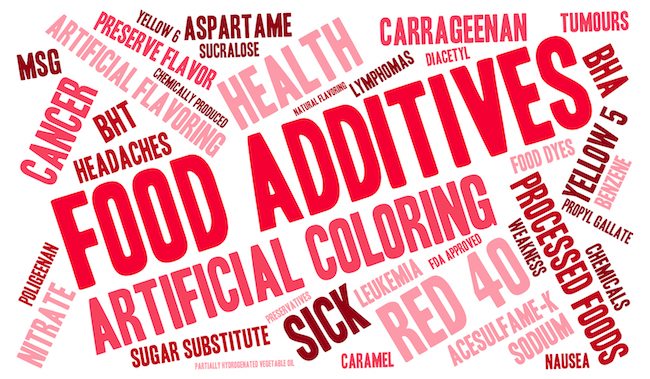
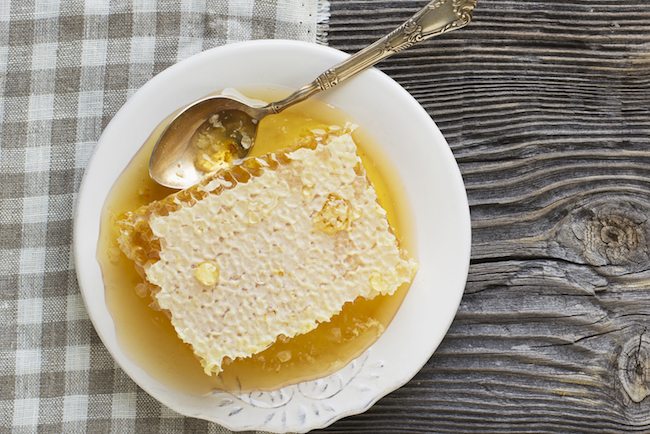
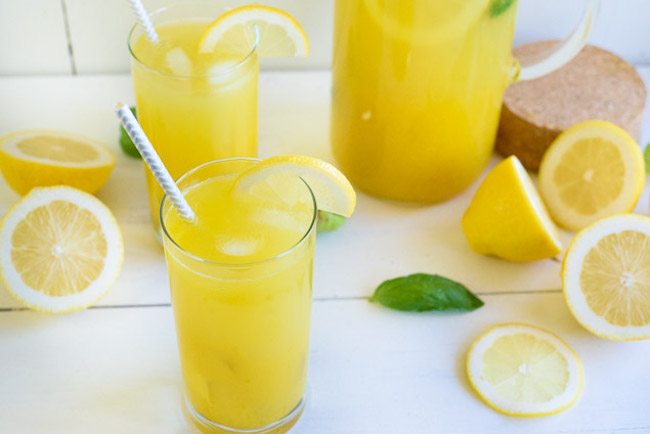
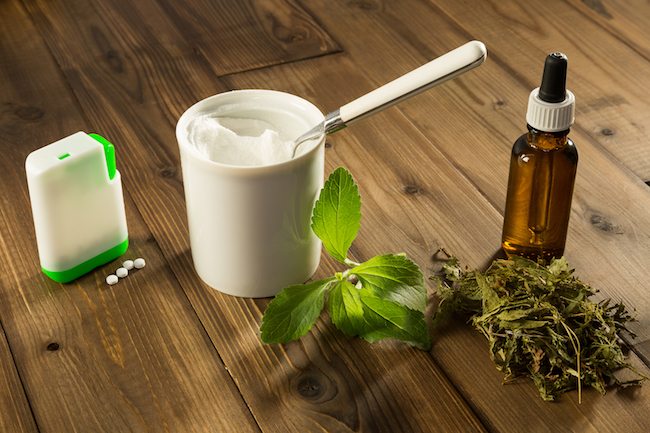
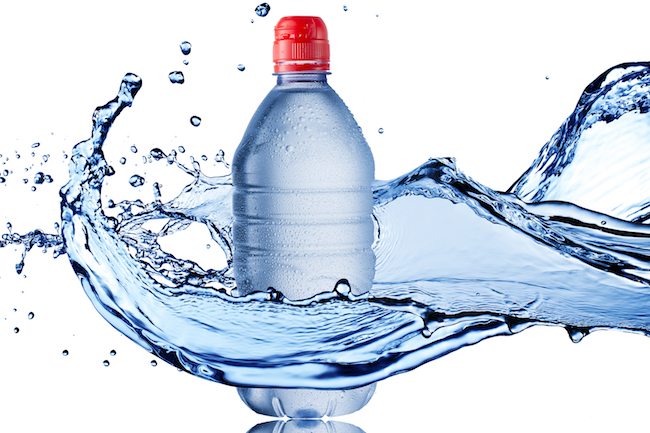


The more I see, the more the better your material is.
Glad you’re enjoying reading the blog, Beauty! Sending you lots of love!
“I feel that is one of the most important information for me.
And i’m glad studying your article. However wanna remark on some normal things, The web site
taste is wonderful, the articles is really excellent : D. Excellent activity, cheers”
I only have one kidney, the other removed due to cancer. I am currently on dialysis because my remaining kidney has high levels of oxalate crystals (not kidney stones) in the tissue, and is dying. This is caused in me and many other people from intestinal surgery. An oxalate limit of 50 mg/day may save by kidney. Many foods contain high levels of oxalate. Stevia is reported to have 42 mg/teaspoon if unprocessed, and 0 if processed. Oxalate levels are unreported for other artificial sweeteners. As a type 2 diabetic I use sugar substitutes in coffee, tea, cereal, and my wife uses in making sugar free desserts. Finding the levels of oxalate in sweeteners, and the difference between processed and unprocessed stevia is critical for me. Any information you can provide is sincerely appreciated!
Wes
Thanks for providing this insight, Wes. I will certainly look more into it!
I have been checking out a few of your stories and i can claim pretty good stuff. I will definitely bookmark your site.
Thanks so much Hannah! Appreciate your feedback and sending you lots of love and continued support! Xo